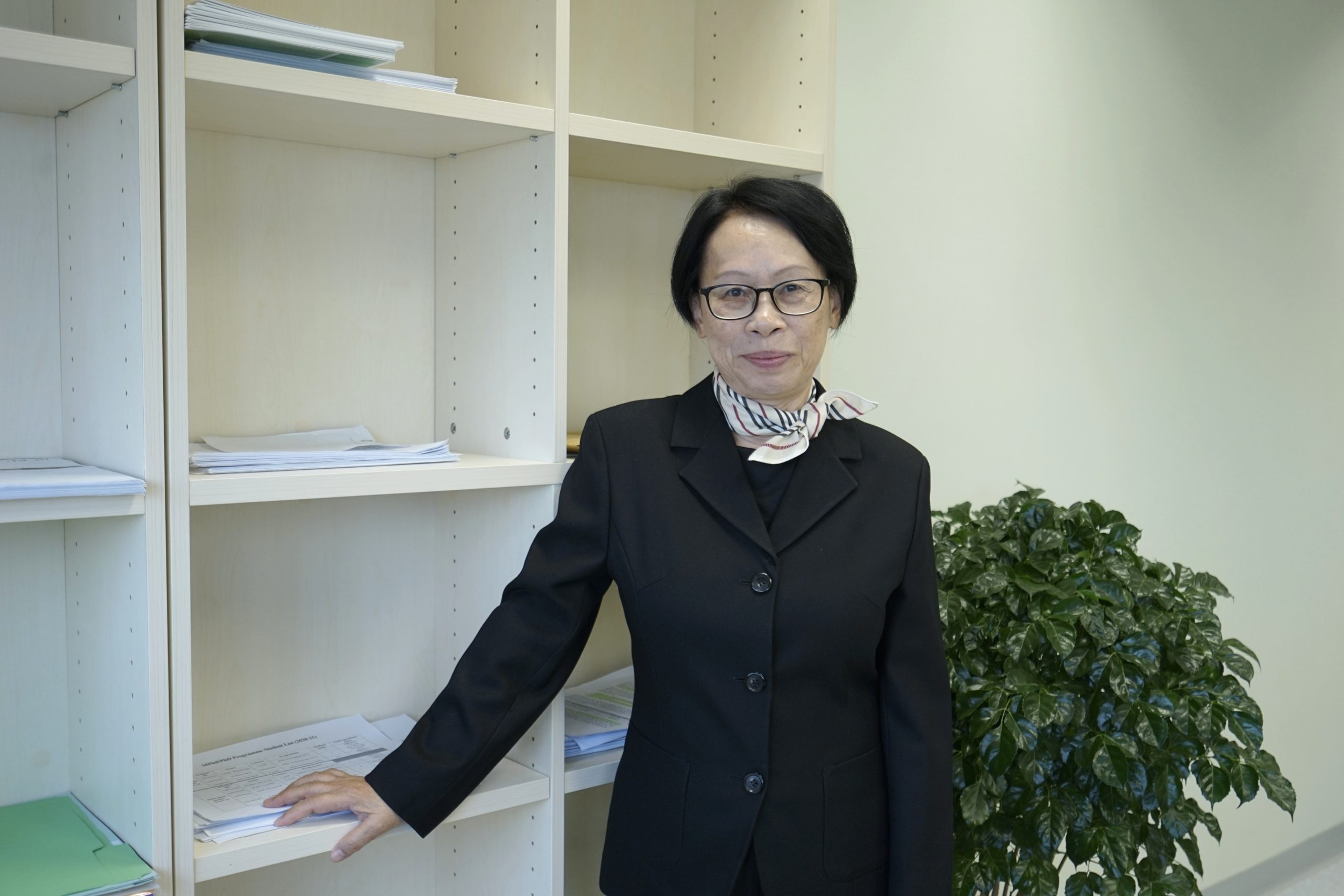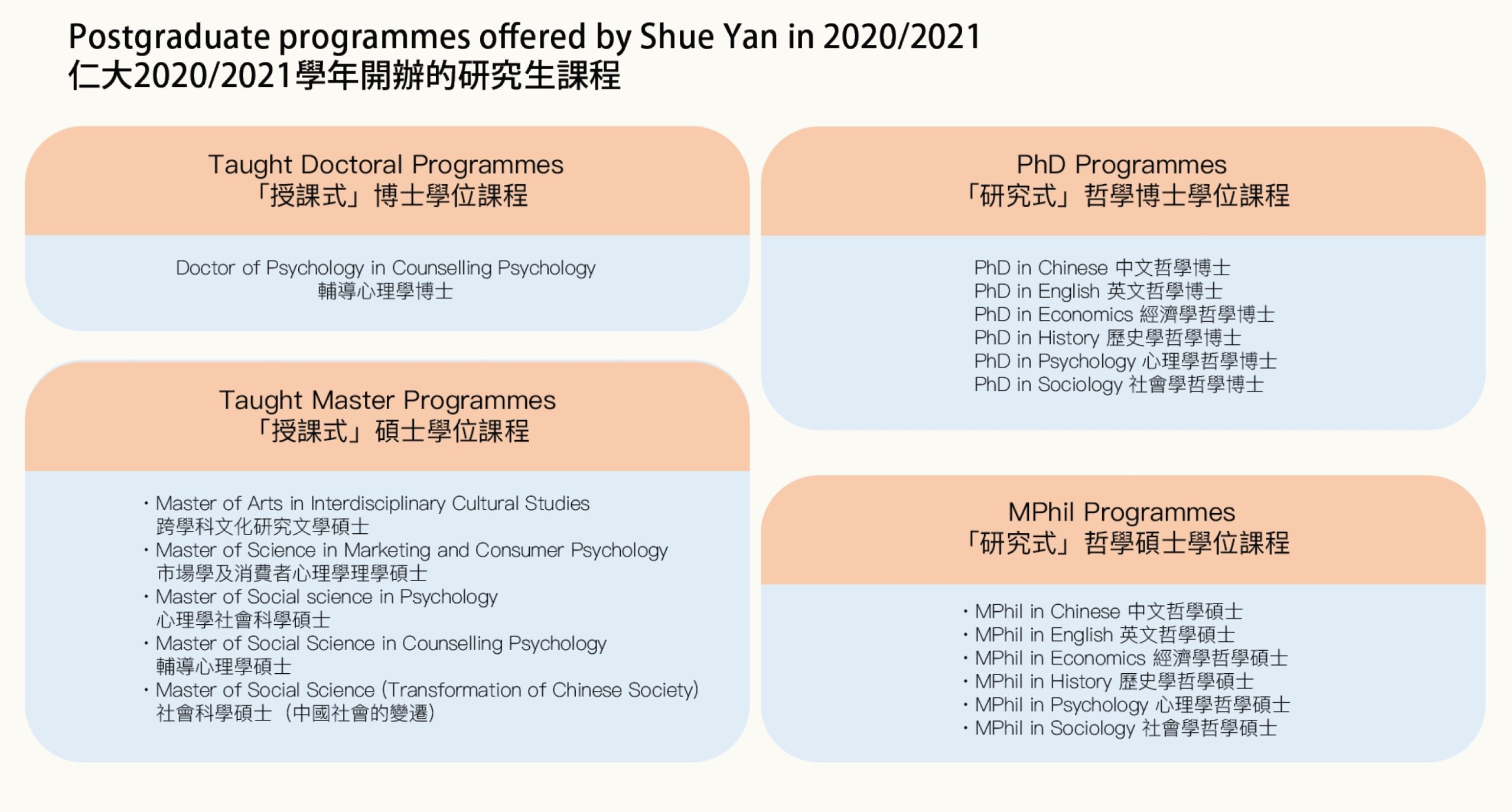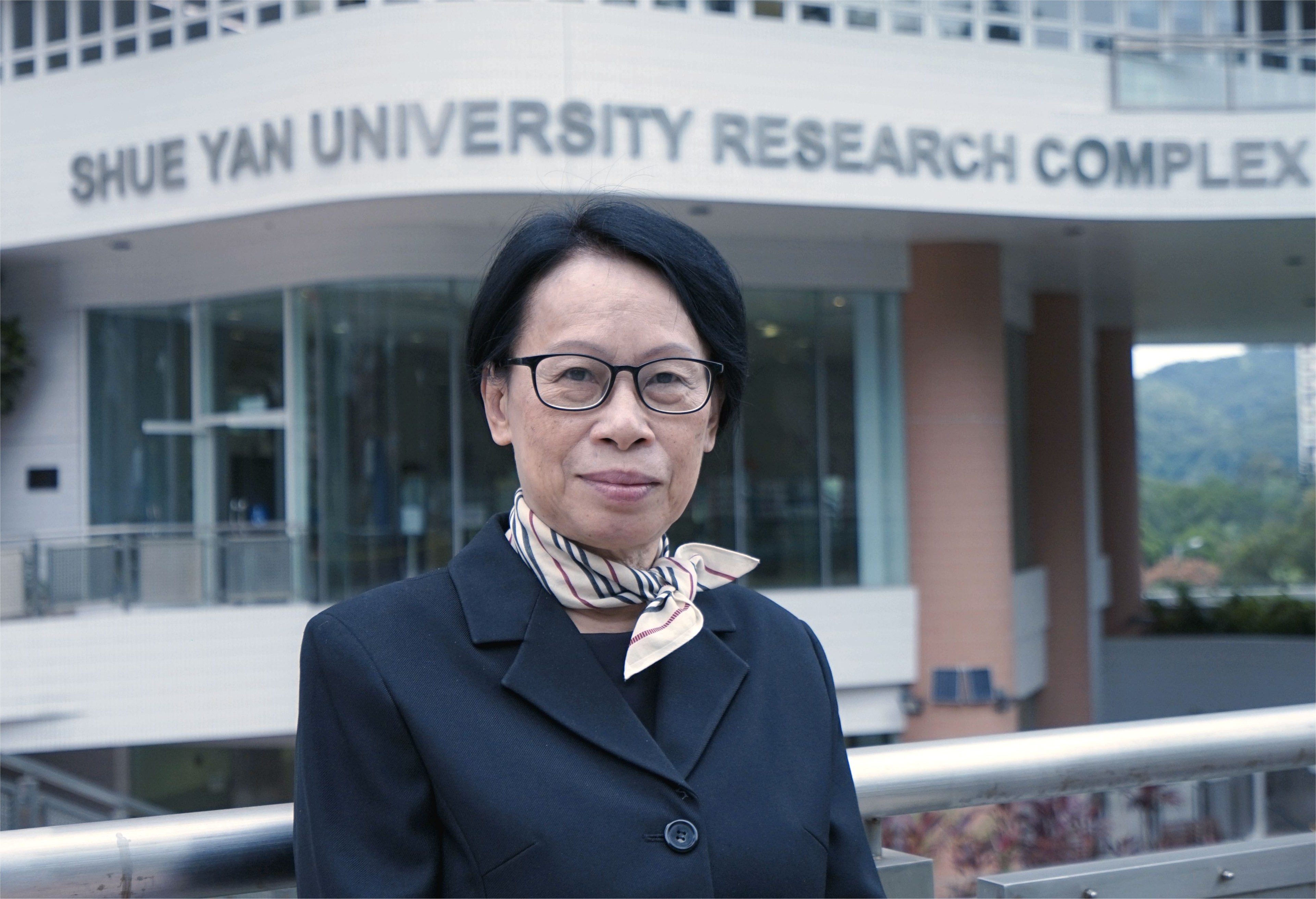Professor TANG So Kum, Catherine, Distinguished Professor of Hong Kong Shue Yan University (HKSYU) assumed the post of Director of the Graduate School on 1 August 2020. In an interview with Shue Yan Newsletter, she talked about the development of the taught and research postgraduate programmes and her preliminary idea on promoting the establishment of the alumni association of postgraduates.
Professor TANG received her PhD in clinical psychology at University of North Texas. Before coming to HKSYU, she was the Professor of the Department of Psychology, National University of Singapore (NUS), and the Co-Director of the Centre For Family and Population Research of NUS.
Reporter: Shue Yan Newsletter reporter
TANG: Professor Catherine TANG
Reporter: First of all, please brief us on the development of the Graduate School?
TANG: These are four types of postgraduate programmes available in HKSYU, namely, Doctor of Philosophy (PhD), Master of Philosophy (MPhil), Taught Doctoral and Taught Master programmes. (See table below) We offered our own taught master programme – Master of Social Science in Counselling Psychology – in September 2010. With the approval of the Hong Kong Council for Accreditation of Academic and Vocational Qualifications (HKCAAVQ), we start to offer six PhD and six MPhil programmes in September 2018.
Since HKCAAVQ had imposed restriction on the number of students enrolled to the 12 research postgraduate programmes in the first five-year period (up to 31 August 2023), in every academic year, we can only enroll two full-time students (two part-time students count as one full-time student) to each PhD and MPhil programme respectively, and the total number of current research postgraduate students cannot exceed twenty. So, it is our policy to focus on quality rather than quantity when enrolling students. In the first academic year, we enrolled three PhD students and three MPhil students. In the second year, we enrolled two PhD and three MPhil students. In the third year, that is 2020/2021, we enrolled two PhD and four MPhil students.
Regarding the taught master prgrommes, in this academic year, we enrolled 47 students. Since the Master of Social Science in Psychology programme will start on January 2021, the admission exercise will end on November 27 (programme website: https://counpsy.hksyu.edu/PostgraduateProgrammes/MasterofSocialSciencesinPsychology).
At present, total number of students of the Graduate School is 64.
Reporter: Do we have any students graduate from the MPhil programme?
TANG: We should have graduates from the MPhil programmes. But their collection of data was affected by the COVID-19 pandemic, and they have applied to extend the study period and the submission date of their theses. They will graduate next year.
Reporter: What is your views on the development of the postgraduate programmes?
TANG: I hope that HKCAAVQ will give us flexibility in the next review. For example, allow us to enroll more students and to offer PhD and MPhil programmes in more disciplines or by more academic departments. I think these measures will have a positive effect on Shue Yan’s academic development and the development of the Graduate School. I will talk to department heads later to see how many of them have the intention to offer PhD and MPhil programmes.
It is important for a university to have enough resources when developing its postgraduate programmes; and it is also important that the research programmes and the taught programmes should complement each other.
The community now has a great demand for taught postgraduate prgorammes, I hope that in the future when Shue Yan wants to launch non-professional taught postgraduate programmes, more progarmmes of interdisciplinary nature will be offered. We believe that such programmes will have more positive impacts on students and the society.
We realize that financial support is very important to postgraduate students, and it can help university to attract high quality students. I and the senior management of the University will spare no effort to find financial resources for students.
Reporter: Shue Yan plans to launch two taught master programme in the next two years, could you tell more about these programmes?
TANG: The University will offer the Master of Social Sciences in Play Therapy in 2022/2023 academic year, and the Master of Social Work in 2023/2024. Both are professional programmes, and we find that there are needs in the society. We believe that the play therapy programme is unique, while the Master of Social Work will face keen competition for students.
Play therapy is gaining recognition in Hong Kong in recent years and is suitable for both children and adult. This proposed programme will be backed up by our counselling psychology and psychology disciplines.
The Master of Social Work programme is a professional social work training programme, and is designed to target non-social work degree holders. The study period is two years for full-time students.
Reporter: Postgraduate students are usually regarded as having a distancing relationship with the university. Do you have any ideas to increase their sense of belonging to the university?
TANG: I think we should foster a sense of belonging among postgraduate students. I will talk about this with department heads. One of my preliminary thinking is to organizing seminars, talks, gatherings and collaborative projects to increase the exchange between students and professors, so as to develop a sense of belonging. I also hope that, in the future, more postgraduate students will be included in university committees. I will promote the setting up of study groups or support groups to foster connection among students.
I have another idea, that is, to promote the setting up of alumni association of postgraduates. When graduates are organized, they can contribute to their alma mater by, for example, being mentors of department or university mentorship schemes, or making use of their network and resources in the industry to support Shue Yan’s development. On the other hand, alumni association can also foster the connection among students and promote mutual support in their career development.


Source: November 2020 Issue
